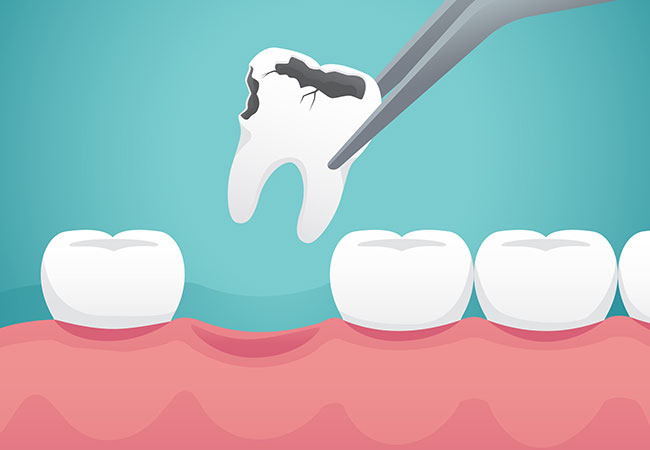Simple Teeth Extractions
A tooth extraction is the removal of the tooth and is most commonly due to dental decay.
When do you need to remove a tooth?
- Tooth fractures as a result of trauma
- Treatment of correction of crowded teeth
- Third molar or wisdom tooth extractions
- Teeth that have not erupted into the mouth (Called impacted teeth)
- Tooth and bone infection due to spread of decay within and beyond the tooth into the surrounding bone
- Tooth extractions required due to radiotherapy or chemotherapy procedures
What is a simple teeth extraction and who all can remove the tooth?
- A simple teeth extraction is removal of all teeth other than third molars. For example, teeth which have enough tooth structure even after decay, teeth required to be removed for treatment of crowding of teeth (Braces), teeth that are mobile and teeth where only the roots are visible and are fairly mobile.
- All General Dentist are qualified to do or perform simple tooth extractions.
- Third molars and wisdom teeth which is not impacted are generally removed by experienced dentist who are confidant to remove wisdom teeth or by qualified specialists in Oral and Maxillofacial surgery.


